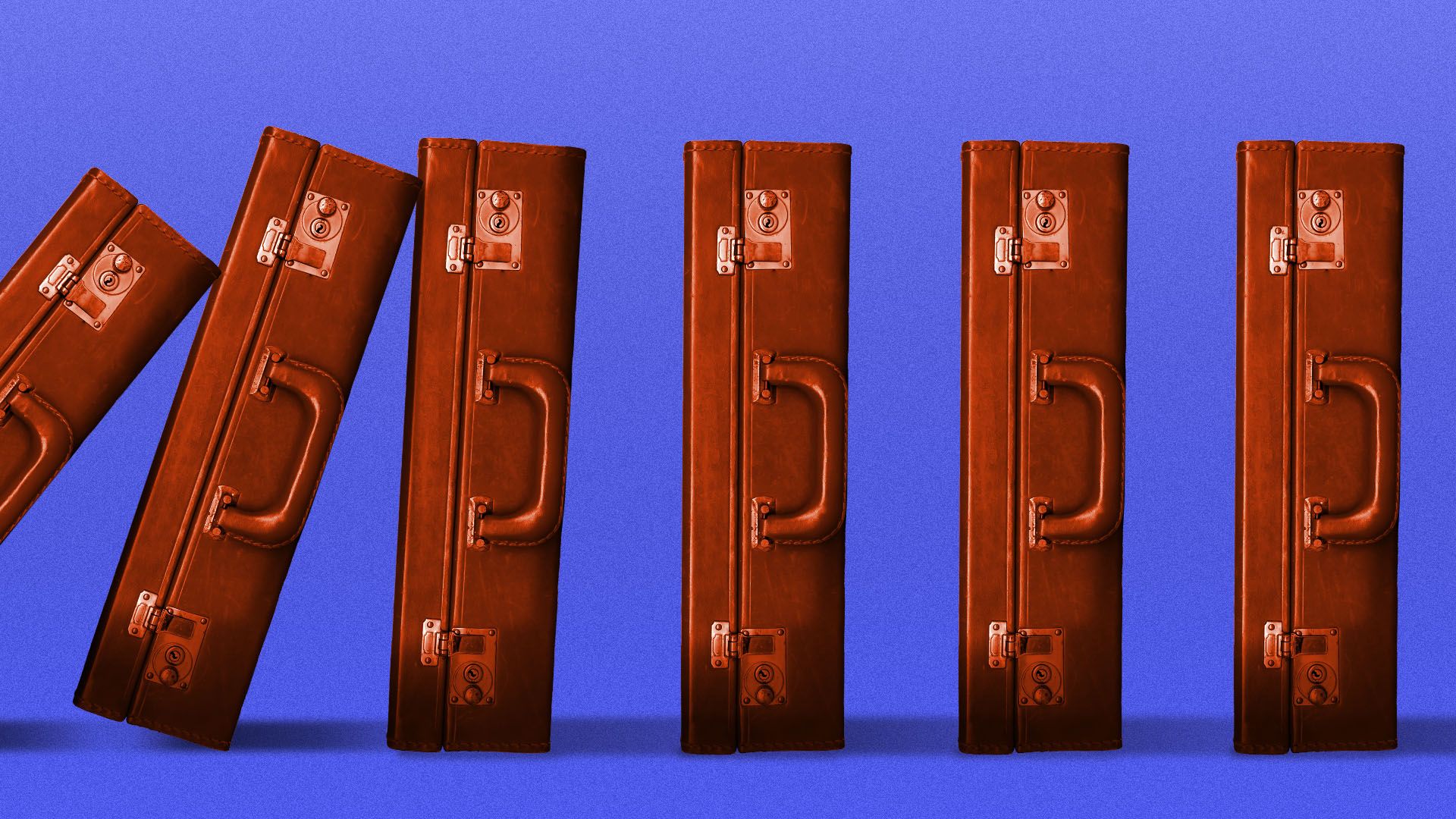The coronavirus' domino effect on startup layoffs
Add Axios as your preferred source to
see more of our stories on Google.

Illustration: Sarah Grillo/Axios
As the coronavirus continues to paralyze much of American daily life, startups that aren’t directly affected by the sudden shift in consumer behavior are now laying off employees too, worried that their products and services won't be in demand anytime soon.
Why it matters: Startups create a lot of jobs — in 2015 alone they created 2.5 million — and their pain could make a recovery from the virus downturn harder.
Driving the news: More young companies are announcing cutbacks, including buzzy retailers like luggage maker Away and software providers like Toast, which in February announced $400 million in new funding.
Others making cuts as the economic ripples gain momentum include:
- AngelList (from its jobs board business)
- ZipRecruiter (a jobs marketplace)
- EZCater (corporate catering)
- Eden (office management)
- SpotHero (public parking)
- Thumbtack (a small business marketplace)
- Kabbage (small business lending)
Between the lines: The U.S. expected that restaurants, stores, hotels, airlines and other businesses would suffer, but now we’re seeing companies whose revenue depends on these businesses suffer.
- If people aren't booking flights for vacations or work trips, they don’t need to buy luggage.
- If restaurants are shuttering or offering takeout only, they’re not spending money on software and tools.
- With most workers no longer reporting to offices right now, their employers aren’t ordering catered lunches or other office-related services.
Moreover, some startups are taking precautionary cuts as the fog over the economy makes it hard to predict the future.
- Others, like direct-to-consumer lingerie-maker ThirdLove and beverage company Iris Nova, are trimming staff as consumers decrease their spending or shift it elsewhere.
The big picture: Similar dynamics are playing out beyond startup land. News companies — especially local newspapers — are cutting staff as local businesses stop purchasing ads. Travel agencies are taking a hit, as are ticketing and event businesses.
Go deeper: The coronavirus dip is worse than anything startups predicted
